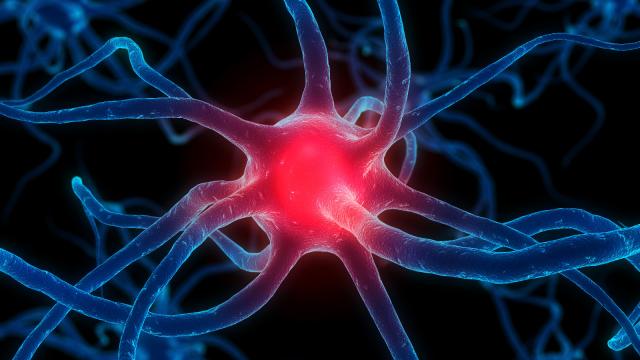One fateful Thursday morning, a kindergarten teacher and reading specialist — known only as M.P. for the sake of anonymity — found that the same attendance sheet she’d been using for years suddenly appeared to be covered in hieroglyphs. Not only that, she quickly realised that everything she logically knew to be covered in writing was entirely incomprehensible to her. Though she wouldn’t find out ’til later, M.P. has been the victim of a stroke that left her with an incredibly rare neurological disorder — one more commonly known as “word blindness”.
Of course, problems reading may have been the first symptom, but it wasn’t the only thing she was having trouble with. In a case study published today in the journal Neurology, M.P.’s doctors describe how, over the next few days, her thinking had slowed and she was having trouble finding the correct words. After checking herself into the emergency room, M.P. was officially diagnosed with alexia without agraphia; in other words, she’d lost the ability to read but could still write and understand language with total clarity.
It seems that the stroke had created a disconnect between her brain’s “language zone” and her visual cortex. So though visual inputs to her language zone were disrupted, other sensory inputs (auditory, for example) remained fully intact, explaining why she could still write and understand spoken English. And M.P. made incredible use of the fact that her other senses in relation to language were still in tact. The case study explains:
But where conventional wisdom had failed her, innovation did not, and M.P. soon discovered that her other senses might prove beneficial. Her discovery was this: when shown a word, M.P. could decipher it letter-by-letter with the help of tactile cues such as letter tracing. “She sort of picked up this tactile approach — truthfully — herself,” her mother says with pride. “She’s the one who reinvented the wheel!”
To see this curious adaptation in practice is to witness the very unique and focal nature of her deficit. Given a word, M.P. will direct her attention to the first letter, which she is unable to recognise. She will then place her finger on the letter and begin to trace each letter of the alphabet over it in order until she recognises that she has traced the letter she is looking at. “That is the letter M,” she declares, after tracing the previous 12 letters of the alphabet with her finger while deciphering a word in front of her. Three letters later, she is able to shorten this exercise with a guess: “This word is ‘mother,’” she announces proudly.
Of course, none of this is quite the same as traditional reading, and it’s still heartbreaking that M.P. can no longer enjoy the activity she’d loved so much as to turn it into a career. She’s certainly making the most of a bad situation though — she’s currently raising money for stroke research and is even in the process of writing a memoir about her experience. And at the very least, M.P. can always take comfort in knowing that there’s an entire army of people out there raising awareness for “word blindness.” Every internet comments section, for example. [Neurology via PopSci]
Picture: Shutterstock/Sebastian Kaulitzki
